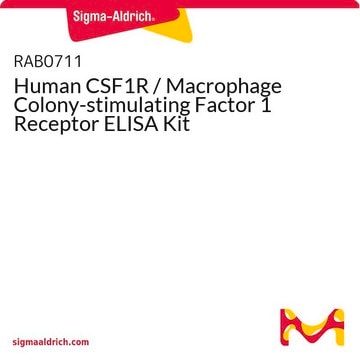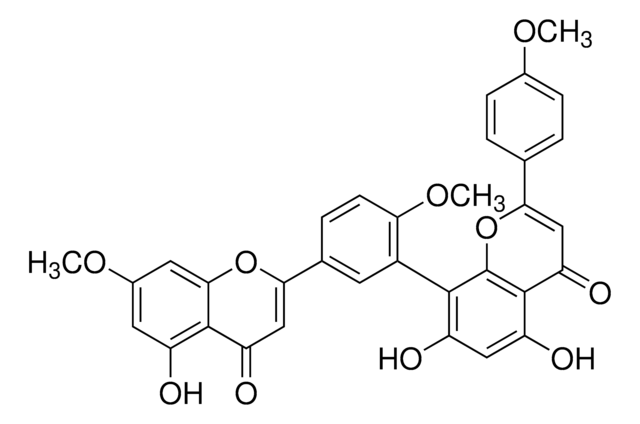R1508
Pvu I from Proteus vulgaris
Restriction Enzyme
Iniciar sesiónpara Ver la Fijación de precios por contrato y de la organización
About This Item
Número de CAS:
MDL number:
UNSPSC Code:
12352204
Productos recomendados
grade
for molecular biology
form
buffered aqueous glycerol solution
concentration
≥5000 units/mL
5,000 units/mL
shipped in
wet ice
storage temp.
−20°C
¿Está buscando productos similares? Visita Guía de comparación de productos
Specificity
Recognition sequence: 5′-CGAT/CG-3′
Cutting results: A 2-10-fold Pvu I overdigestion of 1 μg λ DNA substrate results in 100% cutting.
Heat inactivation: Inactivated at 80 °C for 20 minutes.
Cutting results: A 2-10-fold Pvu I overdigestion of 1 μg λ DNA substrate results in 100% cutting.
Heat inactivation: Inactivated at 80 °C for 20 minutes.
Application
PvuI is a restriction endonuclease that is used for molecular biological applications to cleave DNA at the recognition sequence 5′-CGAT/CG-3′ to generate fragments with 3′-cohesive termini.
Other Notes
Supplied with 10x Restriction Enzyme Buffer SH (B3657).
Physical form
Solution in 20 mM Tris-HCl, pH 7.5, 1 mM EDTA, 300 mM KCl, 1 mM dithioerythritol, 50% glycerol (v/v), 0.05% polydocanol (v/v) at 4 °C.
related product
Referencia del producto
Descripción
Precios
Storage Class
12 - Non Combustible Liquids
wgk_germany
WGK 1
flash_point_f
Not applicable
flash_point_c
Not applicable
Certificados de análisis (COA)
Busque Certificados de análisis (COA) introduciendo el número de lote del producto. Los números de lote se encuentran en la etiqueta del producto después de las palabras «Lot» o «Batch»
¿Ya tiene este producto?
Encuentre la documentación para los productos que ha comprado recientemente en la Biblioteca de documentos.
Sanbing Shen et al.
The Journal of neuroscience : the official journal of the Society for Neuroscience, 28(43), 10893-10904 (2008-10-24)
Disrupted-in-Schizophrenia-1 (DISC1), identified by positional cloning of a balanced translocation (1;11) with the breakpoint in intron 8 of a large Scottish pedigree, is associated with a range of neuropsychiatric disorders including schizophrenia. To model this mutation in mice, we have
E Bonnelye et al.
The Journal of cell biology, 153(5), 971-984 (2001-05-31)
The orphan nuclear estrogen receptor-related receptor alpha (ERRalpha), is expressed by many cell types, but is very highly expressed by osteoblastic cells in which it transactivates at least one osteoblast-associated gene, osteopontin. To study the putative involvement of ERRalpha in
T R Gingeras et al.
Nucleic acids research, 9(18), 4525-4536 (1981-09-25)
Two novel sequence-specific endonucleases have been isolated from Proteus vulgaris, ATCC 13315. PvuI recognizes the sequence: 5' C G A T decrease C G 3' 3' G C increase T A G C 5' and PvuII recognizes the sequence: 5'
C Kessler et al.
Gene, 92(1-2), 1-248 (1990-08-16)
The properties and sources of all known class-I, class-II and class-III restriction endonucleases (ENases) and DNA modification methyltransferases (MTases) are listed and newly subclassified according to their sequence specificity. In addition, the enzymes are distinguished in a novel manner according
Yu-Feng Huang et al.
BMC systems biology, 6 Suppl 2, S10-S10 (2013-01-11)
Current next-generation sequencing (NGS) platforms adopt two types of sequencing mechanisms: by synthesis or by ligation. The former is employed by 454 and Solexa systems, while the latter by SOLiD system. Although the pros and cons for each sequencing mechanism
Nuestro equipo de científicos tiene experiencia en todas las áreas de investigación: Ciencias de la vida, Ciencia de los materiales, Síntesis química, Cromatografía, Analítica y muchas otras.
Póngase en contacto con el Servicio técnico




